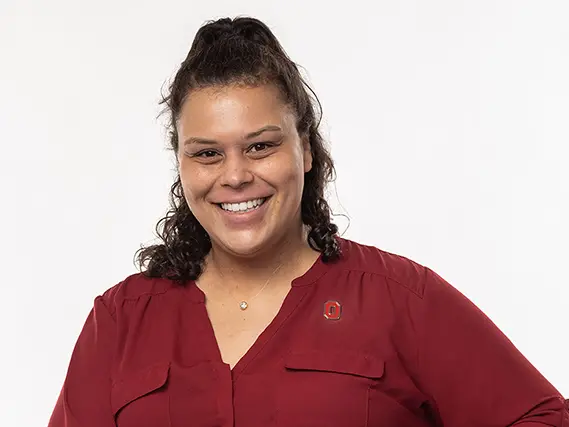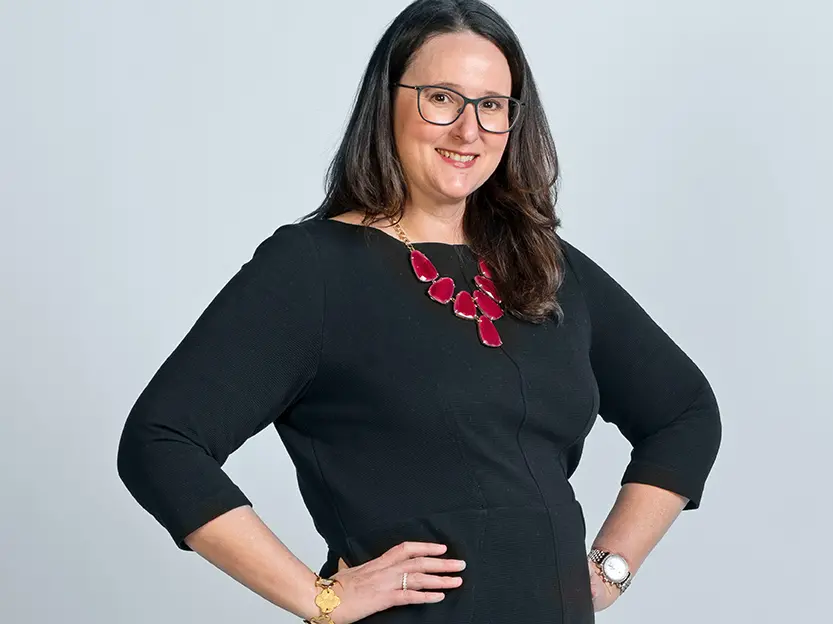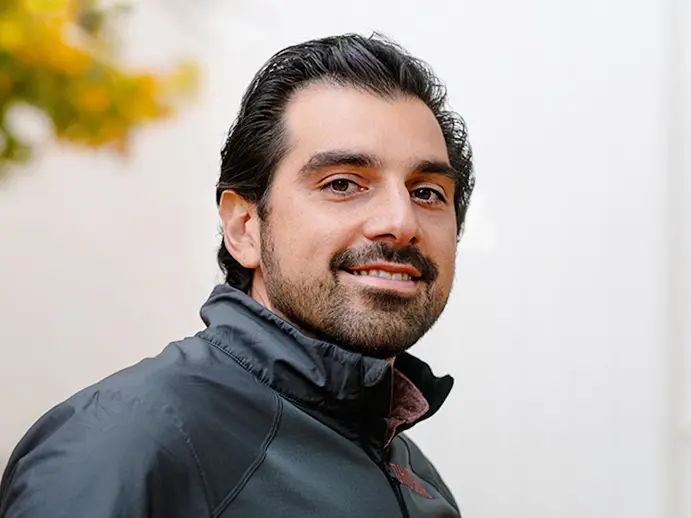Alumni board chair’s advice: Take that meeting
Coca-Cola executive Mark Eppert ’88 sees the opportunity to learn something from everything, so trust him when he says meet people, ask questions, don’t waste time.

Mark Eppert ’88 is chair of The Ohio State University Alumni Association Board of Directors and chief financial officer of The Coca-Cola Co.’s North America Operating Unit. (Photo by Jodi Miller)
“Be the best at getting better.”
Board chair Mark Eppert ’88 began developing this philosophy while working and attending Ohio State — both full time. With many hours spent bagging groceries and tarring driveways, his nontraditional college experience and appreciation for his parents’ dedication to providing for their family keep Eppert committed to remembering where he came from.
His career with The Coca-Cola Co. spans 30 years, and now, as chief financial officer of the North America Operating Unit, Eppert is a rather nontraditional finance leader. He offers this guidance:
“Don’t let the role define you; define the role. I’m an accountant, but I’ll ask legal, marketing or diversity, equity and inclusion questions. Doing so allows me to be viewed and contribute in a broader way than just my job description.”
-
How did Ohio State prepare you?
There were a lot of early learnings around the need for resiliency, prioritization and the importance of both intuitive and fact-based decision-making. Being an effective communicator, an approachable collaborator, having a passion for whatever you are doing and finding some time to have fun — this was foundational to my work today.
At a young age, it was ingrained in me to not waste time. It’s a resource we can’t re-create. When I reflect on my student experience, it was full of trial and error, and it was then that I discovered the power of relationships, which has shaped me for the business world. Take meetings with people, no matter where they are in their careers, entry level or senior. Continuously solicit feedback to gain different perspectives, uncover blind spots and constantly tweak your approach for better impact.
-
What do you hope to accomplish as chair of the alumni board?
If I can continue to be a change agent, and drive diversity as a competitive advantage, this is part of the legacy I want to create. I get a great deal of satisfaction hearing and learning from others. I tend to be direct and transparent, and I hope that I also give people a nugget or two from my experience they can take away. I believe in leaving projects I worked on in a better place, and building off of the progress already made.
I am humbled by the opportunity to partner with and lead such a great group of peers. There are so many people who would love to have the opportunity to serve on the board. That motivates me.
-
How have you been able to pay forward in other ways?
I believe continuing informal mentorships is valuable. For most of us, myself included, someone made that call, took that chance and gave you the opportunity that revealed your potential. If I can help someone else get that same break, it could be the one that changes their life forever.
My wife Mary [Merullo Eppert ’87] and I wanted our two daughters to not have to work full time during college like we did, and this inspired us to try to do the same for Ohio State students. We set up a scholarship we call “It’s All Good,” for students from our high school who have at least a 3.0 and didn’t get other scholarship support, hopefully making a little difference in someone else’s life.
-
As we celebrate this milestone for the ’Shoe, what are some of your favorite memories here?
Growing up not far from it in Upper Arlington, I was in the shadow of the ’Shoe, able to hear the band on Saturdays and walk to campus.
The year I graduated, they held the first-ever concert in Ohio Stadium, Pink Floyd in ’88. One of my childhood friends had his wedding reception in the president’s box, and we took pictures on the field.
I remember playing intramurals there, like softball back when they let you on the field. The moments that stand out for me are mostly around football games. It doesn’t get better than that! Mary and I are excited to cheer on our Buckeyes this season.
-
How did you pivot the board to making remote connections?
I have to give credit to alumni association staff, especially for handling logistics. When we did our first virtual meeting, we realized we were trying to pack too much in and needed to streamline. We moved from everyone gathering at Longaberger Alumni House to Zoom breakout rooms. Again with some trial and error, the staff figured out how to connect teammates, from Maryland all the way to Hong Kong.
The shift unlocked and enabled us as a board to reassess how we wanted to operate going forward. Recognizing the importance of time on our campuses, we have aligned to meet live in May and September, adding back in some of those enriching in-person experiences. As we have become more efficient, and considering the risk of inclement weather, we have both shortened the content and pivoted our February meetings to be fully virtual.


